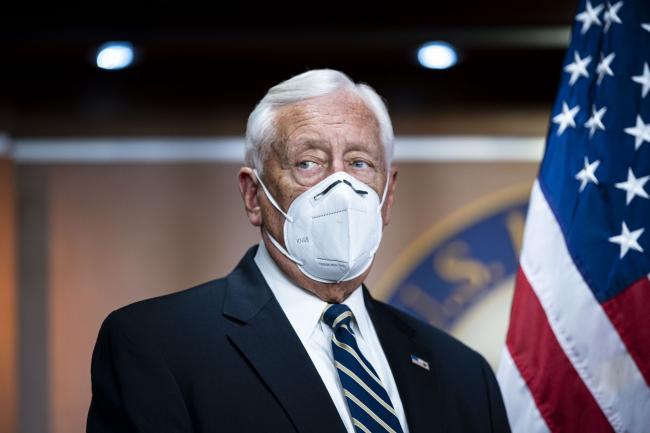This post was originally published on this site
https://d1-invdn-com.akamaized.net/content/picb7b2cf3f1e55b6bd41e31f3f68a8d0a6.jpg
The Maryland Democrat said he talked with Senate Majority Leader Mitch McConnell on Monday and they agreed “it would be optimal if we could get to an agreement by this weekend.”
He acknowledged that timetable is optimistic, but said the recent flurry of proposals on a compromise offer “positive steps” forward for the long-stalled negotiations.
Still, both sides appeared to be holding to some of the earlier positions that left negotiations at a standstill. They again accused each other of putting partisanship ahead of compromise, and it was unclear on Wednesday whether Democrats and Republicans have moved far enough to provide a breakthrough.
House Speaker Nancy Pelosi and Senate Democratic leader Chuck Schumer have presented a new stimulus proposal to McConnell and Treasury Secretary Steven Mnuchin, though they refused to release details. McConnell responded by circulating his own plan to fellow Republicans, saying it had the blessing of President Donald Trump. While he labeled it a new proposal, an outline distributed to GOP senators showed it was largely a revision of an earlier $500 billion plan that had been rejected by Democrats as inadequate.
Bipartisan Pitch
Separately, a bipartisan group of lawmakers from the House and Senate have offered a $908 billion compromise package, which so far hasn’t been embraced by leaders in either party.
Mnuchin told reporters Wednesday that he had spoken “briefly” with Pelosi Tuesday about her new pitch, but declined to offer public comment on it. He said that he didn’t plan to speak with her again Wednesday.
Asked what Trump will sign, Mnuchin said Trump favors the approximately $500 billion McConnell plan. Prior to losing the election, Trump said he wanted more than $2.2 trillion in stimulus.
The emergence of the proposals reflected the rising concerns that the economy needs another boost amid evidence that surging Covid-19 cases are undermining the recovery as past fiscal support runs out.
The pandemic also is driving action in Congress. Hoyer and other lawmakers said the continued spread of the coronavirus across the country is adding urgency to efforts to wrap up congressional business so members can return home and safely quarantine before the holidays.
Over the next 10 days, Congress also has to deal with passing a $1.4 trillion annual spending bill to fund government operations. The U.S. government has been working under a stopgap measure since the fiscal year began on Oct. 1. That expires Dec. 11, and missing the deadline would trigger a partial government shutdown.
The must-pass measure has emerged as the potential vehicle for pandemic-related relief measures, such as aid for small businesses and funding or vaccine distribution. However, there are differences there as well. Those include Trump’s demand for border wall and immigration enforcement funding, West Virginia Republican Senator Shelley Moore Capito said. However, she predicted a deal could be struck in time in part because lawmakers want to leave the Capitol to avoid catching Covid.
“I think we can get this done, agree on the omnibus, agree on the outlines of a Covid-19 bill” by this weekend, Hoyer said.
©2020 Bloomberg L.P.

